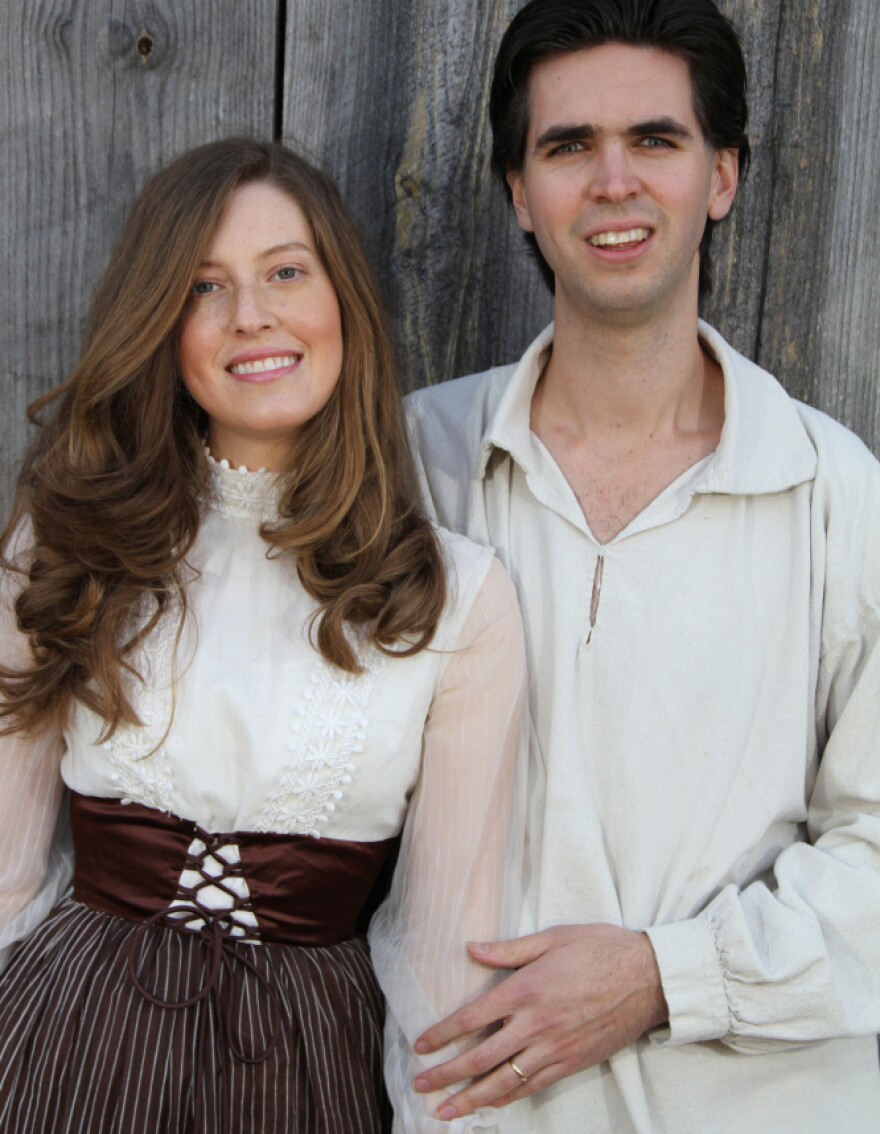As a child growing up on his family's farm in the 1980s, Jere Gettle didn't spend his evenings watching TV; instead, he read seed catalogs. To him, the endless varieties of seeds with exotic-sounding names were full of possibility. He loved the idea of planting them in the ground, tending the crops that grew from them and preparing the harvested vegetables for a family meal.
Gettle and his wife, Emilee, have built a thriving business off that early fascination. The Baker Creek Heirloom Seed Co. carries a large selection of seeds from the 19th century, and the Gettle's new book, The Heirloom Life Gardener, offers advice on how to save and grow heirloom vegetables.
Jere Gettle tells NPR's Lynn Neary that you can find heirloom seeds sitting in people's backyards, garages and cellars, just waiting to be rediscovered — and now, some of them are finally coming back.
"In the last 10 or 12 years, all of a sudden every chef and every magazine is ... starting to talk about our agricultural past," he says, "and with that comes the varieties that made America."
Gettle's interest in heirloom seeds — or seeds that are no longer cultivated — began early on, when he was just a kid flipping through seed catalogs.
"About the time I was 10 or 12 years old, I started noticing seeds disappearing," he says. "Especially the '80s [were] a period when varieties were just being dropped randomly from catalogs for no reason other than [that] they weren't the newest thing."
Gettle says the disappearance of varieties like the banana melon, "which was an incredible melon," inspired him to go in search of other forgotten flora.

Jere Gettle's Baker Creek Heirloom Seed Co. offers seeds for 62 different varieties of eggplant.
What's most striking about the vintage varieties Gettle has collected is just how different they look from those in grocery stores. That difference, he says, reflects their history.
"There are varieties from African-American heritage, Japanese varieties, German varieties," he says. "And each type comes with their own cultures — whatever they thought was greater, tastier, good-looking — so you have a lot of diversity."
In his book, Gettle features an assortment of eggplants that look very different from the big, purple pear shape most Americans are used to. He credits those eggplants with helping him realize the limitations of the vegetable's American varieties.
"I was first really enlightened on how much variety there really was when I traveled to Thailand and I would see 15 or 20 varieties at the grocery store," Gettle says. "I was really struck by how little Americans know about eggplant."
Gettle has traveled the world in search of heirloom seeds and the stories behind them. He says one of his favorite finds is the Yokohama squash, which was brought to the U.S. in the 1860s but disappeared from commercial seed catalogs in the 1880s.
"We thought it was extinct, and we finally found a grower in France that was still preserving it," he says. "It's a beautiful, [flat], pumpkin-shaped squash with a beautiful gray-green rind and it has a waxy look to it."
But you don't have to fly all the way to France for heirloom seeds. Once you're already eating heirloom varieties, Gettle's book offers advice for saving your seeds so you can replant them.
"As long as you're planting the traditional varieties that aren't patented, you can save seed," he says. "It's a process nature does every year, otherwise we wouldn't still be given these varieties. It's very simple, but there are a few tips to let people know things that make it easier so they won't make mistakes."
According to Gettle, peas, tomatoes, eggplant and lettuce are among the crops that make for easy seed saving.
'Stars' Of The Farmer's Market
Today, heirloom crops have become so popular that some people treat them like precious works of art. In his book, Gettle recalls attending an auction where buckets of heirloom vegetables were being sold for around $1,000.

Emilee and Jere Gettle run a farm, vegan restaurant and seed store in Mansfield, Mo.
"Farmers markets have tripled in the last 10 or 12 years in the United States and, fortunately for heirloom varieties, they have become kind of the stars at each farmers market," he says.
In the end, however, Gettle says he's always happy to see people throwing their support behind the heirloom movement.
"Anything to create awareness of where our food comes from, the varieties and the history behind it all — anything that can encourage that," he says, "we're for."
Copyright 2023 NPR. To see more, visit https://www.npr.org.



